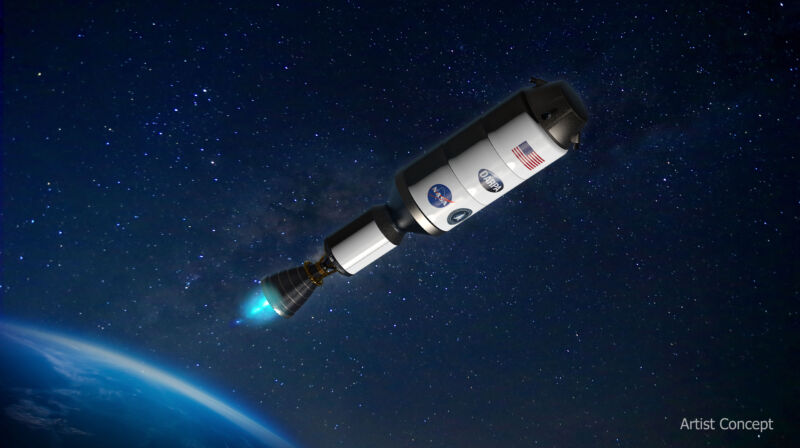Nearly three years ago, the US Defense Advanced Research Projects Agency announced its intent to develop a flyable nuclear thermal propulsion system. The goal was to develop more responsive control of spacecraft in Earth orbit, lunar orbit, and everywhere in between, giving the military greater operational freedom in these domains.
The military agency called this program a Demonstration Rocket for Agile Cislunar Operations, or DRACO for short. The program consists of the development of two things: a nuclear fission reactor and a spacecraft to fly it. In 2021, DARPA awarded $22 million to General Atomics for the reactor and gave small grants of $2.9 million to Lockheed Martin and $2.5 million to Blue Origin for the spacecraft system.
At the same time, NASA was coming to realize that if it were really serious about sending humans to Mars one day, it would be good to have a faster and more fuel-efficient means of getting there. An influential report published in 2021 concluded that the space agency's only realistic path to putting humans on Mars in the coming decades was using nuclear propulsion.
Nuclear thermal propulsion involves a rocket engine in which a nuclear reactor replaces the combustion chamber and burns liquid hydrogen as a fuel. It requires significantly less fuel than chemical propulsion, often less than 500 metric tons, to reach Mars. That would be helpful for a Mars mission that would include several advance missions to pre-stage cargo on the red planet.
So this week, NASA said it is partnering with the military agency and joining the DRACO project.
“NASA will work with our long-term partner DARPA to develop and demonstrate advanced nuclear thermal propulsion technology as soon as 2027," said NASA Administrator Bill Nelson. "With the help of this new technology, astronauts could journey to and from deep space faster than ever, a major capability to prepare for crewed missions to Mars."
The US space agency will provide no direct funding at this time. However, its Space Technology Mission Directorate will lead the technical development of the nuclear thermal engine, a key component of the spacecraft that will harness energy from the nuclear reactor. DARPA will still lead the overall program development, including rocket systems integration and procurement.
Nuclear thermal propulsion has long been a goal of spaceflight advocates, dating back to the days of German rocket scientist Wernher von Braun and NASA's Project NERVA. Those plans were never realized, and the idea has remained on the back burner for decades. Now, this joint project is the most serious US effort to develop the technology since then. It has the added benefit of interest from the US Congress, which has been pushing the space agency to get involved.
None of this will happen fast. The technology is difficult and unproven, and there are of course regulatory issues involved with launching a nuclear reactor into space. The year 2027 seems optimistic for a demonstration, and the technology is unlikely to be used to send humans to Mars before at least the very late 2030s.
But something is finally happening. For now, that's enough.



3175x175(CURRENT).thumb.jpg.b05acc060982b36f5891ba728e6d953c.jpg)

Recommended Comments
There are no comments to display.
Join the conversation
You can post now and register later. If you have an account, sign in now to post with your account.
Note: Your post will require moderator approval before it will be visible.